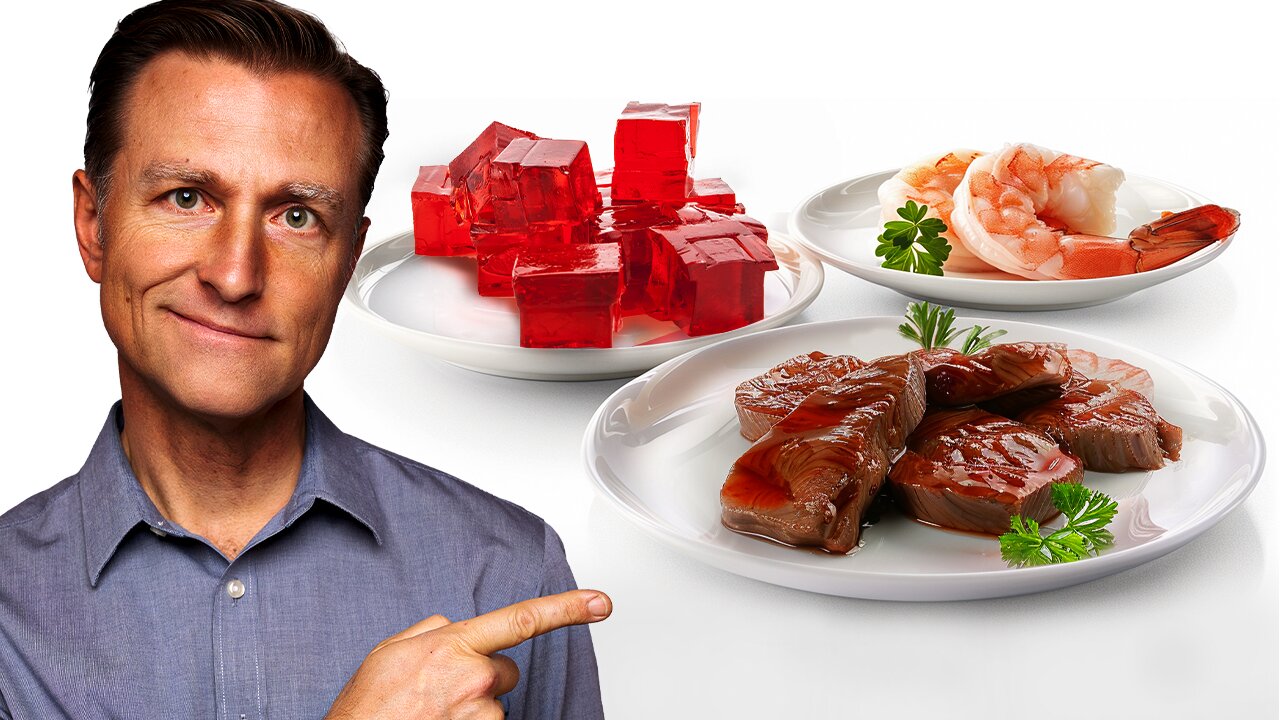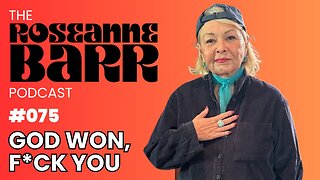Premium Only Content

Build up Your Glutathione without Supplements
Learn about the important antioxidant glutathione and discover 10 ways to make sure that you’re getting enough.
0:00 Introduction: What is glutathione?
1:00 Symptoms of a glutathione deficiency
1:13 Glutathione deficiency causes
3:05 How to get enough glutathione without a supplement
7:30 Check out my video about the antioxidant melatonin!
In this video, we’re going to talk about the antioxidant glutathione. Glutathione is an important antioxidant present in all of your cells. It helps detoxify heavy metals and protects against free radical damage and oxidation.
Your body makes glutathione! You should only take a supplement if you have Tylenol poisoning. Tylenol depletes glutathione and puts your liver at risk for damage. If you’re dealing with Tylenol poisoning, you may be given an NAC supplement, a precursor to help build up your glutathione.
Glutathione deficiency symptoms include the following:
• Trouble sleeping
• Brain fog
• Fatigue
• Mood issues
• Depression
• Anxiety
Top causes of glutathione deficiency:
• Alcohol
• Low-calorie diets
• Overtraining
• Vegan diets
• Low-protein intake
• A mutation of the MTHFR gene
• Folic acid supplements
Try the following tips to ensure that you’re getting enough glutathione without taking a supplement:
1. Get enough glycine. Consume organ meats, the skin from meat and fish, bone broth, and gelatin.
2. Ensure adequate B vitamin intake. Avoid synthetic B vitamins. Meat is a great source of B12 and consuming organ meats and dark leafy greens will help add folate to your diet.
3. Get plenty of vitamin C from sources like sauerkraut and leafy greens.
4. Get enough sleep.
5. Do not over-exercise. Limit high-intensity exercise to twice a week.
6. Reduce stress. Adaptogens, going for a walk, listening to music, and even physical labor can reduce stress.
7. Consume sufficient protein with plenty of calories.
8. Increase carb intake to 50 grams per day.
9. Consume cruciferous vegetables.
10. Consume seafood for trace minerals like zinc and selenium.
Dr. Eric Berg DC Bio:
Dr. Berg, age 58, is a chiropractor who specializes in Healthy Ketosis & Intermittent Fasting. He is the author of the best-selling book "The Healthy Keto Plan" and is the Director of Dr. Berg Nutritionals. He no longer practices, but focuses on health education through social media.
Follow Me On Social Media:
Facebook: https://bit.ly/FB-DrBerg
Instagram: https://bit.ly/IG-DrBerg
Anchor: https://bit.ly/Anchor-DrBerg
TikTok: https://bit.ly/TikTok-DrBerg
Disclaimer:
Dr. Eric Berg received his Doctor of Chiropractic degree from Palmer College of Chiropractic in 1988. His use of “doctor” or “Dr.” in relation to himself solely refers to that degree. Dr. Berg is a licensed chiropractor in Virginia, California, and Louisiana, but he no longer practices chiropractic in any state and does not see patients so he can focus on educating people as a full-time activity, yet he maintains an active license. This video is for general informational purposes only. It should not be used to self-diagnose and it is not a substitute for a medical exam, cure, treatment, diagnosis, prescription, or recommendation. It does not create a doctor-patient relationship between Dr. Berg and you. You should not make any change in your health regimen or diet before first consulting a physician and obtaining a medical exam, diagnosis, and recommendation. Always seek the advice of a physician or other qualified health provider with any questions you may have regarding a medical condition.
#keto #ketodiet #weightloss #ketolifestyle
Thanks for watching! I hope this increases your awareness about the antioxidant glutathione. I’ll see you in the next video.
-
 5:45
5:45
Dr. Eric Berg
5 days agoSTOP OVERTHINKING 24/7
7.83K13 -
 LIVE
LIVE
Price of Reason
7 hours agoHollywood Celebrities FLEE the US After Trump Win! Wicked Movie Review! Gaming Journos MAD at Elon!
1,136 watching -
 LIVE
LIVE
Alex Zedra
3 hours agoLIVE! Last Map on The Escape: SCARY GAME.
2,302 watching -
 1:14:07
1:14:07
Glenn Greenwald
7 hours agoComedian Dave Smith On Trump's Picks, Israel, Ukraine, and More | SYSTEM UPDATE #370
126K142 -
 1:09:07
1:09:07
Donald Trump Jr.
10 hours agoBreaking News on Latest Cabinet Picks, Plus Behind the Scenes at SpaceX & Darren Beattie Joins | TRIGGERED Ep.193
168K504 -
 1:42:43
1:42:43
Roseanne Barr
6 hours ago $43.35 earnedGod Won, F*ck You | The Roseanne Barr Podcast #75
66.9K143 -
 2:08:38
2:08:38
Slightly Offensive
7 hours ago $12.14 earnedDEEP STATE WINS?! Matt Gaetz OUSTED as AG & Russia ESCALATES War | Guest: The Lectern Guy
31.9K9 -
 1:47:36
1:47:36
Precision Rifle Network
7 hours agoS3E8 Guns & Grub - the craziness continues
25.6K2 -
 41:37
41:37
Kimberly Guilfoyle
8 hours agoPresident Trump Making all the Right Moves,Live with Border Union Chief Paul Perez & Lawyer Steve Baric | Ep. 176
125K35 -
 19:38
19:38
Neil McCoy-Ward
11 hours agoMASS LAYOFFS Have Started... (How To Protect Your Income)
33.2K7